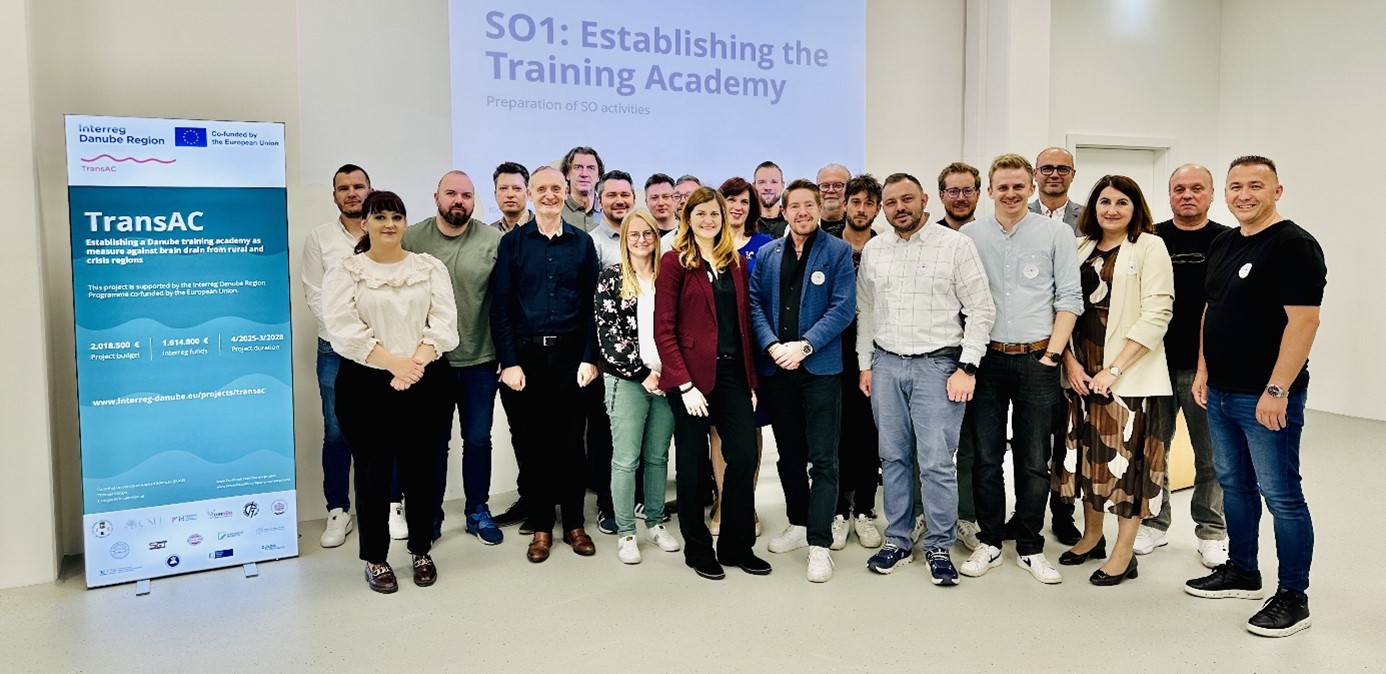Project; 2025 – 2028
EUSDR Priority Area(s): PA 9 People & Skills
The TransAC project aims to address the negative impacts of brain drain and social stress in rural and crisis areas. The project focuses on young learners, who are most likely to emigrate, as well as vulnerable learners, who are most affected by social stress. Both groups will receive training to improve their future prospects. The project’s focus is on training in additive manufacturing due to its economic potential for rural and crisis regions, as well as the high demand for trainees in this field.
Objectives: The main objective of TransAC is to develop a training academy for emerging technologies to counteract the downward spiral caused by brain drain in rural and crisis regions. The training academy will provide innovative and high-quality training courses in additive manufacturing, addressing the needs of learners and the labour market, with a particular focus on young people, vulnerable groups and lifelong learning. To fully realise the potential of this technology for the labour market, relevant stakeholders such as industry/SMEs, policymakers, and educational institutions will be involved in the development process and throughout the project.
Need and (expected) impact: Rural and crisis regions are subject to a global competition of regions. A brain drain is taking place, threatening the society of these regions by demographic change towards a higher percentage of elderly people and decreasing tax revenues. Vulnerable groups are often particularly affected and have high unemployment. Increasing social stress and brain drain lead to a downward spiral.
With TransAC, rural and crisis regions are strengthened by establishing a training academy for emerging technologies. This will make the regions more attractive to young people and vulnerable groups, reducing social stress, counteracting brain drain and making the regions a good place to learn and live.
Macro-regional dimension: In TransAC, seven regions are working together to tackle the brain drain in rural and crisis regions in seven Danube Region countries: Carinthia (Austria), Zenica-Doboj Canton (Bosnia and Herzegovina), Karlovačka County (Croatia), Northern Bavaria (Germany), West Region (Romania), Vojadina (Serbia) and Kharkiv Region (Ukraine).
Stakeholders involved: Educational institutions, policymakers, industry/SMEs, and facilitators collaborate within the project to determine the optimal framework for education, training, and the labour market in their respective regions.
Budget and Funding: EUR 2 018 500, out of which 80% are funded under the Interreg Danube Region Programme
Further information: https://interreg-danube.eu/projects/transac
Contact: Franz Riemelmoser, Carinthia University of Applied Sciences,




